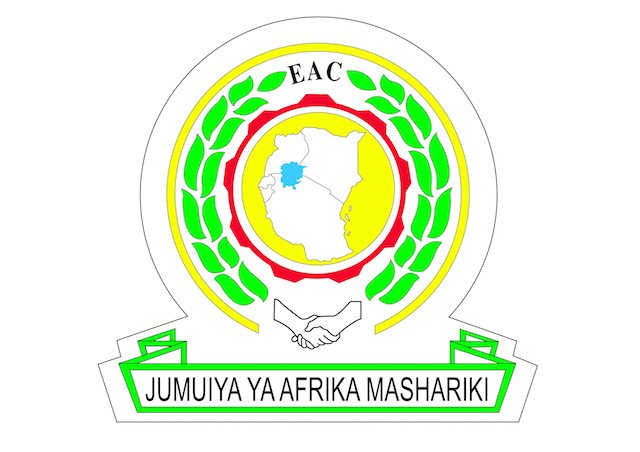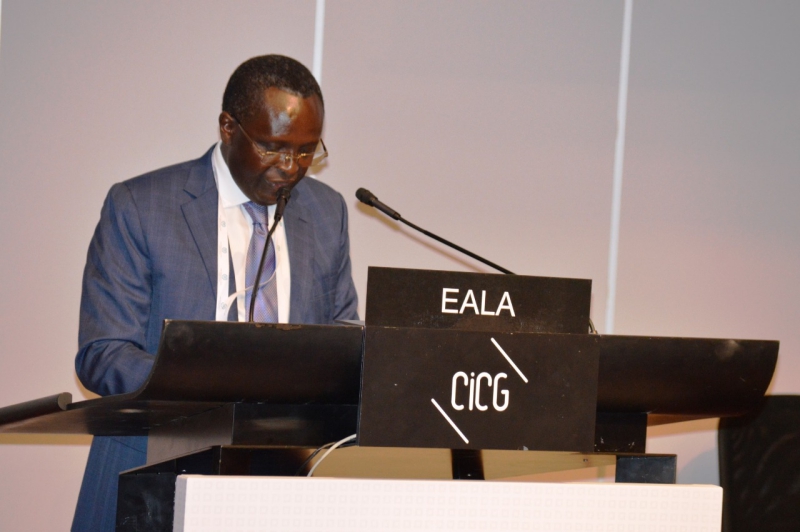
Posted in Press Release
East African Legislative Assembly, Arusha, October 22, 2018: The East African Legislative Assembly (EALA) has resumed its Sitting in Arusha, Tanzania. The Second Meeting of the Second Session which commenced this morning (October 22, 2018) with meetings of respective Committees, continues until November 10, 2018.
Key items expected at the Sitting include the debate on the East African Community Statistics Bill, 2017 and that on the Report of the Accounts Committee on the EAC Audited Accounts for the Financial Year ended 30th June, 2017, both of which were deferred when the Assembly met two weeks ago in Arusha.
The EAC Statistics Bureau Bill, 2017, seeks to establish the Statistics Bureau as an Institution of the Community under Article 9 of the Treaty and Article 21 of the Protocol on Establishment of the EAC Monetary Union. The Bill provides for the functions, powers, governance and its funding with a view to establishing the institution responsible for statistics in a bid to support the East African Monetary Union. The Bill is in line with Article 21 (c) of the Protocol on the Establishment of the EAC Monetary Union which provides for the Summit, on the recommendation of the EAC Council of Ministers to establish an institution responsible for statistics as one of the institutions to back the EAC Monetary Union. The debate on the Bill was deferred on October 3rd, 2018, to allow for further consultation. The Motion to postpone the debate on the crucial Bill was moved by Minister for EAC, Burundi, Hon Isabelle Ndahayo on behalf of the Council of Ministers and supported by legislators.
The Hon Minister (then) informed the House that, the EAC Statistics Bureau Bill, 2017, which was a Council Bill needed time for more consultation before debate can ensue.
The House likewise received the report on the EAC Audited Accounts for the Financial Year ending 30th June, 2017. Debate is therefore expected to ensue. Also, for consideration is the EAC Annual Report 2015/2016.
This week, rigorous Committee work shall take place with all the Standing Committees of the House meeting to review reports, analyze pending issues as they prepare for the actual plenary sitting next week. The Assembly has 6 Standing Committees. These are:
- The Committee on Accounts
- The Committee on Legal, Rules and Privileges
- The Committee on Communication, Trade and Investment
- The Committee on Agriculture, Tourism and Natural Resources
- The Committee on Regional Affairs and Conflict Resolution
- The Committee on General Purpose.
The Assembly which holds six Plenary Sessions in every Financial Year, has a principle of rotation.
NOTE TO EDITORS ABOUT EALA
The East African Legislative Assembly is the Legislative Organ of the East African Community. Its Membership consists of a total of 62, of whom 54 are elected Members (9 from each Partner State) and eight ex-officio members (the Ministers responsible for EAC Affairs from the Partner States, the Secretary General of the Community and the Counsel to the Community).
The East African Legislative Assembly has legislative functions as well as oversight of all East African Community matters. The enactment of legislation of the Community is put in effect by means of Bills passed by the Assembly and assented to by the Heads of State, and every Bill that has been duly passed and assented to become an Act of the Community and takes precedent over similar legislations in the Partner States. EALA has to date passed 79 pieces of legislation.
- ENDS -
For more information, please contact:
Bobi Odiko
Senior Public Relations Officer
East African Legislative Assembly
Arusha, Tanzania
Tel: +255-27-2508240
Fax: +255-27-2503103
Cell: +255-787-870945, +254-733-718036
Email: BOdiko [at] eachq.org
Web: www.eala.org

Posted in Press Release
East African Legislative Assembly, Geneva, Switzerland: 16th October, 2018: The 139th Inter-Parliamentary Union Assembly commenced in Geneva, Switzerland this week with over 1000 MPs and Parliamentary staff meeting to deliberate on issues under the umbrella theme of science, technology and innovation. EALA Speaker, Rt Hon Ngoga Karoli Martin, addressed the congregation this morning (October 16th, 2018) urging legislators to harness the untapped value of technological innovations to build initiatives that abhor violence, enhance peace-building tools and support human security around the globe for positive societal impact.
Rt Hon Ngoga urged legislators to embrace technological innovation to maintain communication with their constituencies and to leverage liaison roles with governments and other stakeholders. While noting the detrimental effects of technology and innovation, the EALA Speaker remarked that it was similarly vital and a responsibility of Parliaments to regulate the industry.
“Today, technological revolution has enhanced communications and presents a phenomenal impact on the economy, society and environment since the days of mechanized production. It is equally recognized that technological revolution presents societal and economical challenges; resulting in loss of jobs occasioned by automation. Technological change further exacerbates inequalities due to the disproportion in certain segments of the populations, a characteristic that poses ramifications for peace and security – the very core of our deliberations here today”, Rt Hon Ngoga said.
“We are challenged to orient our legislative strategy towards tapping positive change aided by technological innovations”, he added.
The Speaker termed the costs of lack of peace and insecurity as critical.
“The Global Peace Index, 2018, released by the Institute for Economics and Peace “reveals a world where tensions, conflicts and crises remain largely unresolved resulting in a gradual, sustained fall in peacefulness”. In 2017, “the economic impact of violence on the global economy was pegged at US $14.76 Trillion in purchasing power parity terms; a figure equivalent to 12.4% of the world’s economic activity (Gross World Product) or USD 1,988 for every person’’, Rt Hon Ngoga remarked.
Rt Hon Ngoga implored legislators to pay attention to the availability, efficacy and affordability of ICTs and to shun the risk of elitism associated with technological innovations. Such is crucial to overcome perception and reduction of disengagement and further marginalization of constituents from the political processes guaranteed.
The Speaker called for a legislative framework enabling youth to comprehend and embrace technology without been prone to manipulation motives that hampers peace and security initiatives.
The Assembly is covering multiple subjects including fake news, sexism and harassment in Parliaments, human rights, disarmament, counter-terrorism, the Sustainable Development Goals (SDGs), and migration.
Gender equality in science and technology is one of the themes under discussion at the IPU Forum of Women Parliamentarians, a topical subject following the tripartite award of the 2018 Nobel Prize for Physics to Donna Strickland, only the third woman to have ever won the prize. MPs on the IPU Standing Committee on Peace and International Security are also discussing parliamentary action on disarmament, arms control, and non-proliferation strategies for weapons of mass destruction, conventional weapons and future weapon technologies.
Accompanying the Speaker are EALA Members, Hon Wanjiku Muhia, Hon Christopher Nduwayo, Hon Fancy Nkuhi Haji and senior Parliamentary staff.
The 139th IPU edition has also attracted over 50 Speakers of Parliament and 40 Deputy Speakers. Of the MPs in attendance, 20 per cent are young MPs under 45 years of age and 33 per cent are women.
Other EAC Speakers and Parliamentarians are also in attendance. Republic of Kenya is represented by the Speaker of the Senate, Rt Hon Kenneth Lusaka, while Rt Hon Rebecca Kadaga, Speaker of the Parliament of Uganda leads her delegation. Rt Hon Anthony Lino Makana, Speaker of the Transitional National Legislative Assembly of the Republic of South Sudan is also in attendance. Rt Hon Nyabenda Pascal, Speaker of the Burundi National Assembly leads his delegation while Rwanda is represented by the Deputy Speaker, Hon Gakuba Jean d’Arc.
The impact of technology on information, and the responsibility of Parliaments to regulate fake news, is also a subject of a panel discussion between MPs, journalists, and academics.
In addition, the Assembly is hosting a knowledge fair including exhibits by the International Renewable Energy Agency (IRENA).
- ENDS -
For more information, please contact:
Bobi Odiko
Senior Public Relations Officer
East African Legislative Assembly
Arusha, Tanzania
Tel: +255-27-2508240
Fax: +255-27-2503103
Cell: +255-787-870945, +254-733-718036
Email: BOdiko [at] eachq.org
Web: www.eala.org
About the East African Legislative Assembly:
The East African Legislative Assembly is the Legislative Organ of the East African Community. Its Membership consists of a total of 62, of whom 54 are elected Members (9 from each Partner State) and eight ex-officio members (the Ministers responsible for EAC Affairs from the Partner States, the Secretary General of the Community and the Counsel to the Community).The East African Legislative Assembly has legislative functions as well as oversight of all East African Community matters. The enactment of legislation of the Community is put in effect by means of Bills passed by the Assembly and assented to by the Heads of State, and every Bill that has been duly passed and assented to become an Act of the Community and takes precedent over similar legislations in the Partner States. EALA has to date passed 79 pieces of legislation.


